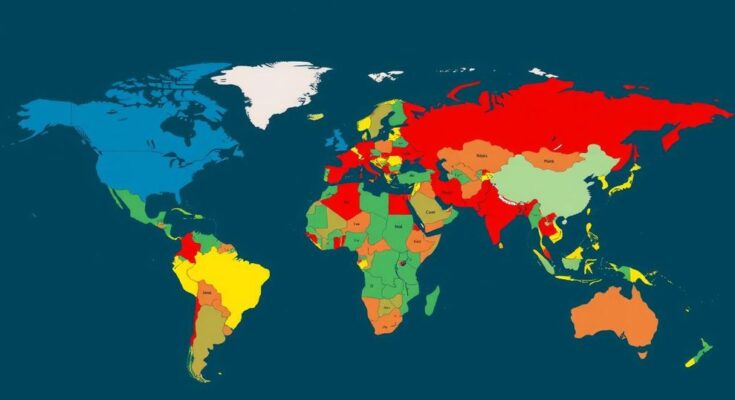Wealthy nations have begun to compensate poorer countries for damages caused by climate change, exemplified by Christopher Bingala’s experience in Malawi after Cyclone Freddy. Despite pledges totaling around $720 million, experts warn that more funding is necessary due to the growing frequency and severity of climate-related disasters. Discussions are ongoing at COP29 regarding the management and distribution of these funds to effectively support those most affected.
In the wake of Cyclone Freddy, which devastated southern Malawi in 2023, Christopher Bingala, a subsistence farmer and father of six, faced immense challenges as floodwaters destroyed his home and livestock. Thankfully, he received approximately $750 in “loss and damage” compensation – a groundbreaking initiative aimed at providing financial support to countries struggling with the impacts of climate change, despite contributing minimally to global pollution. This compensation allowed Bingala to build a new home and improve his family’s living conditions, although obstacles remain in returning his children to school and regaining farm resources.
The “loss and damage” funding originated from wealthier nations recognizing their historical role in climate change, with promises of around $720 million pledged from nations such as the European Union and the United States. However, experts caution that this amount will likely be insufficient to address the escalating climate-related disasters. At the recent COP29 climate summit in Baku, Azerbaijan, discussions continued on determining financial obligations owed to developing nations, amid mounting pressures from increasingly severe weather patterns.
In Malawi, the compensation program, funded by the Scottish government and administered by the nonprofit organization GiveDirectly, exemplifies efforts to assist those affected by climate change. The initiative is critical as communities grapple with recurrent disasters, highlighting the absence of insurance or financial support systems for low-income households. As Yolande Wright from GiveDirectly emphasizes, the most disadvantaged populations contribute the least to greenhouse gas emissions, yet face the brunt of climate-related adversities.
Moreover, the need for loss and damage funding is projected to escalate, potentially requiring $250 billion annually by 2030 according to recent studies. As highlighted by Prime Minister Philip Davis of the Bahamas, climate change recovery efforts have resulted in increased national debts, as borrowing becomes essential to rebuild. With the majority of pledged funds still needing to be disbursed, and the foundational guidelines for the fund not yet established, the urgency for effective financial support grows.
The article discusses the emerging global initiatives to provide financial compensation, termed “loss and damage” funding, to poorer nations that suffer disproportionately from climate change effects despite their minimal contributions to greenhouse gas emissions. This financial support targets nations like Malawi, which recently faced immense flooding caused by Cyclone Freddy. The article underscores the disparity between rich and poor countries in terms of climate responsibility and the urgent need for effective systems to manage escalating climate-related crises, amid discussions at international climate summits.
The initiative for loss and damage funding represents an essential step towards climate justice, as wealthier nations seek to compensate developing countries for the extensive impact of climate change-related disasters. While initial pledges are promising, the actual disbursement of funds remains critical to address the urgent needs of affected populations. As global climate challenges intensify, continued dialogue and commitment are necessary to develop robust funding mechanisms that can adapt to the expanding scope of climate-related devastation.
Original Source: www.mainepublic.org




